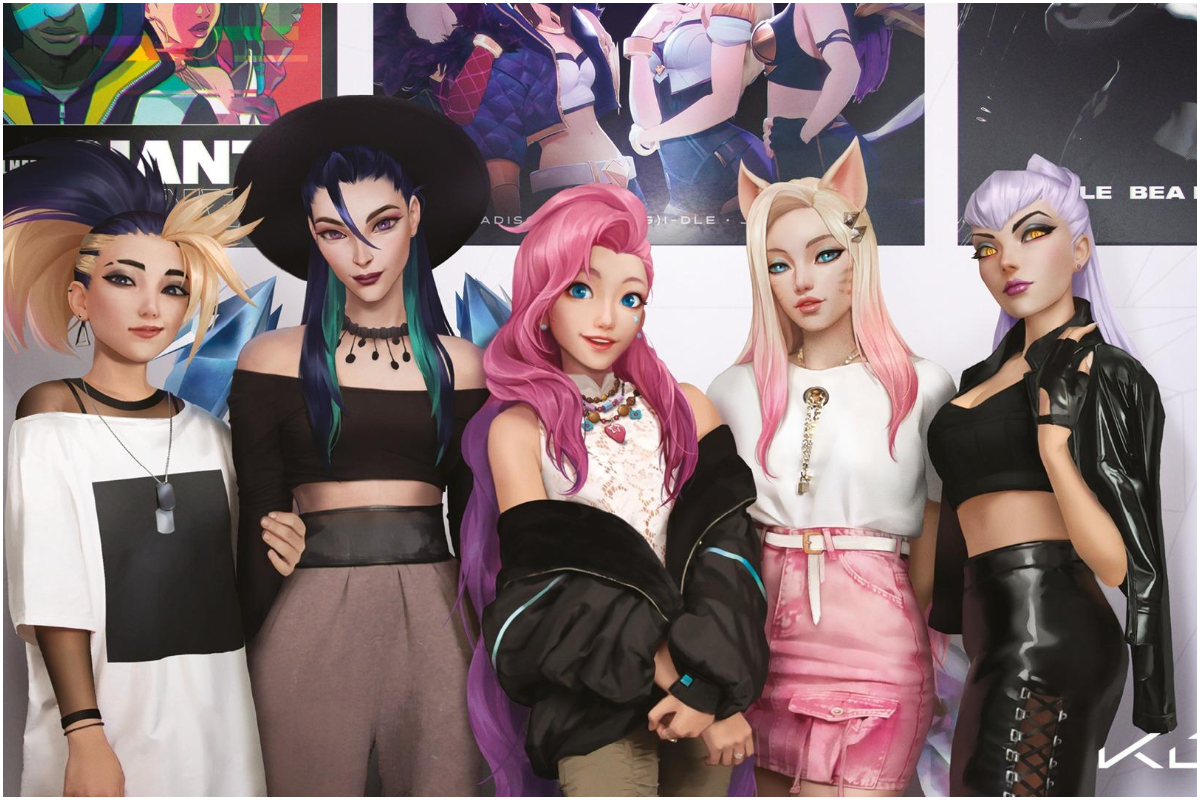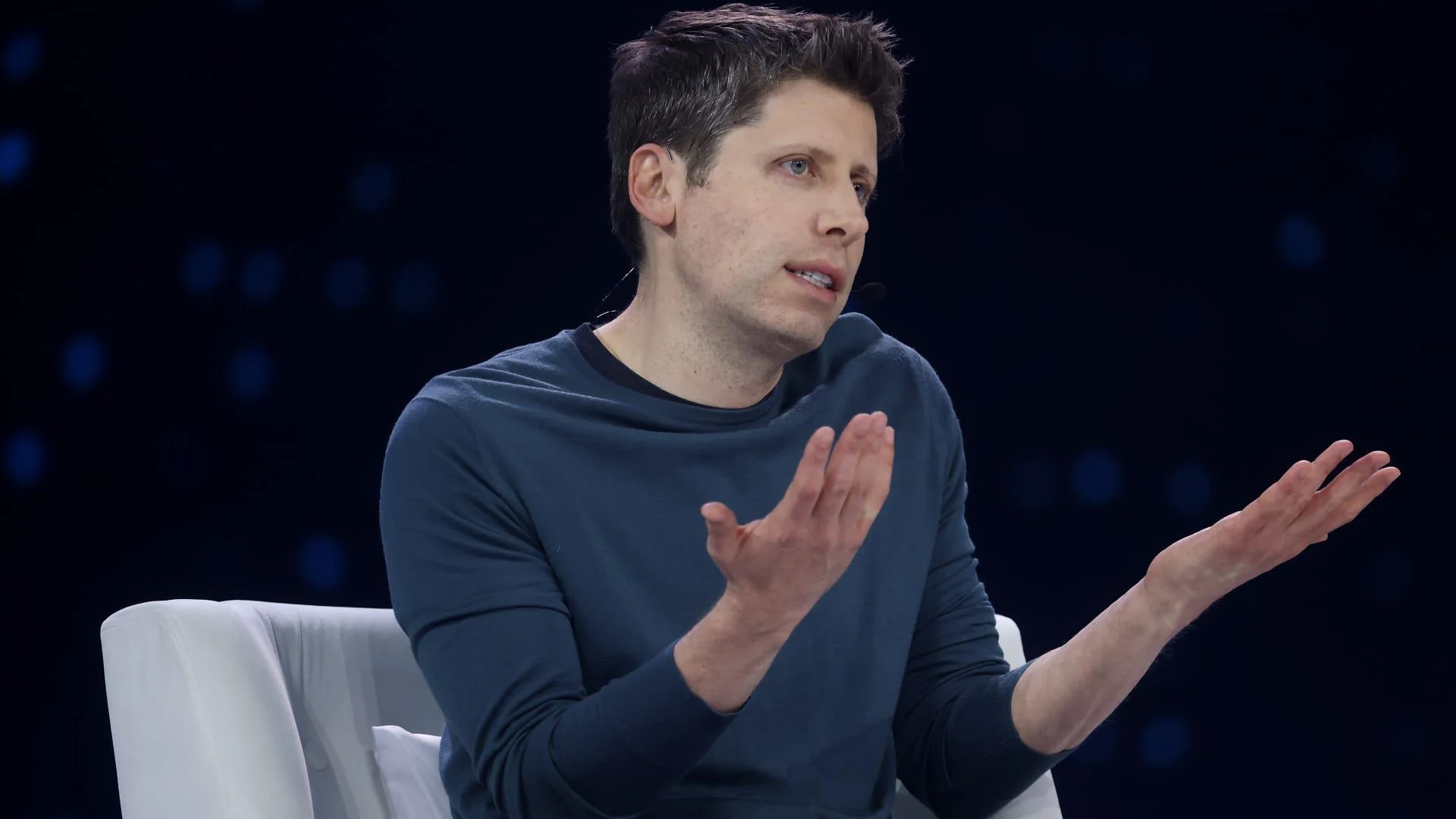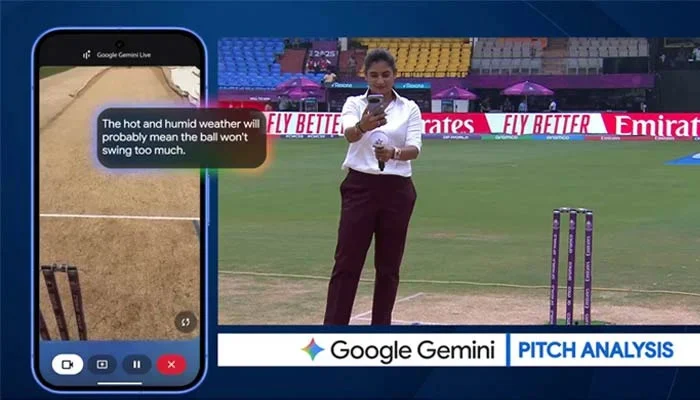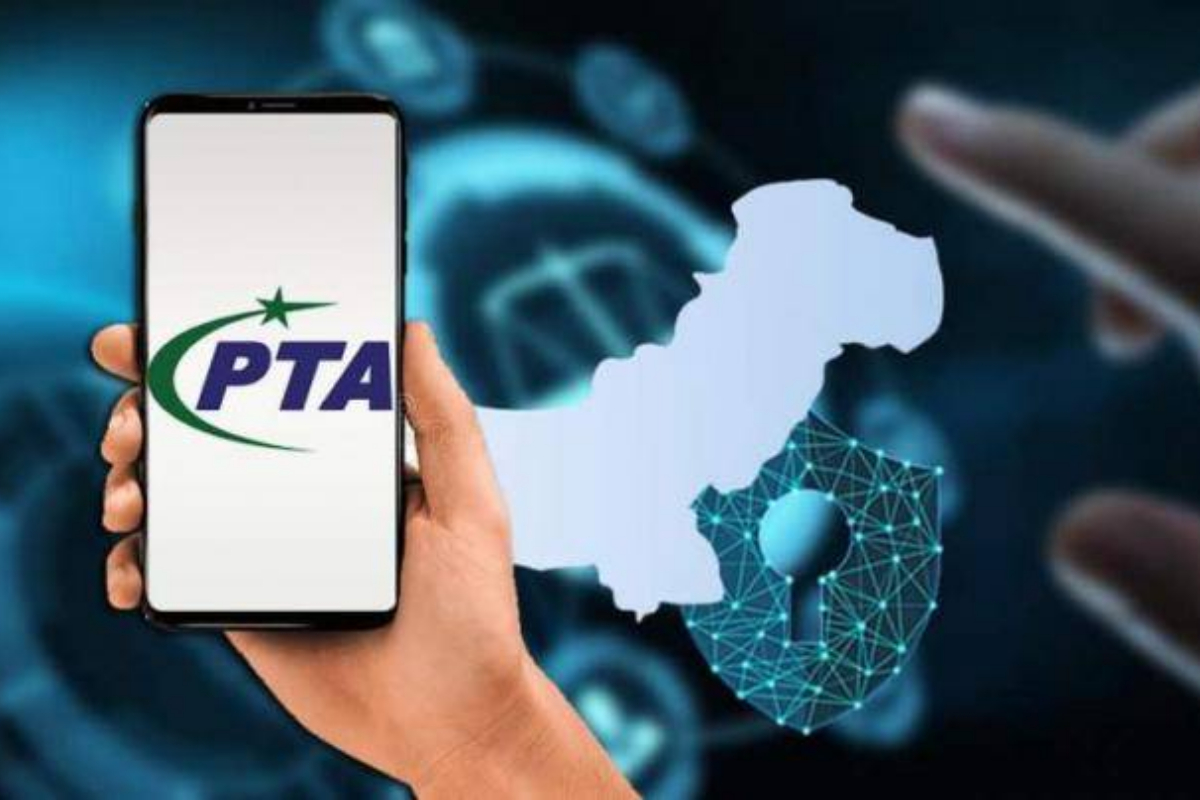- K-pop girl trio Eternity have amassed millions of online views since releasing their first track I’m Real in 2021.
- Like any other band, they perform songs, dance, and engage with their audience.
- hyper-realistic avatars created by artificial intelligence that are not people.
Like any other band, they perform songs, dance for their audience, and engage with them.
In actuality, there is just one significant distinction between them and any other pop group you may be familiar with: each of the 11 members is a virtual persona.
artificial intelligence-created, hyper-real avatars that are not people.
“We are starting a brand-new business with Eternity. It seems like a new genre, “According to Park Jieun, the brains behind Eternity.
While K-pop stars frequently battle with physical restrictions or even emotional distress since they are human, virtual artists can be free from them, which is an advantage of having them.
Over the past ten years, Korean pop has grown to be a multibillion dollar cultural powerhouse. K-pop, one of South Korea’s most successful and significant exports, has exploded into the worldwide mainstream thanks to its catchy tunes, cutting-edge production, and seductive dance moves.
However, the most well-known K-pop artists, their throngs of devoted followers, and the entrepreneurs hoping to profit from their success are all focused on the future.
These music idols are expanding their renown into a completely new realm thanks to the rise of artificial intelligence (AI), deepfake, and avatar technologies.
The deep learning technology startup Pulse9 produced the virtual faces of the members of Eternity. The organization’s CEO is Park Jieun.
Initially, the company created 101 imaginary faces and classified them into four groups based on their appeal: cute, sexy, innocent, and clever.
On their favourites, the audience was asked to vote. After then, internal designers got to work animating the victorious characters in accordance with fan preferences.
The avatar faces can be projected onto unidentified singers, actresses, and dancers who have been hired by Pulse9 for live conversations, videos, and online fan meetups.
The technology makes the characters come to life in a manner similar to a deepfake filter.
There have been worries that as deepfake technology becomes more prevalent, it might be used to create harmful misinformation or change people’s photographs without their consent.
Women have complained about having their images used in pornographic movies, and deep fakes of Ukrainian President Volodymyr Zelensky and Russian President Vladimir Putin have been circulated online.
I try to be very clear that these are imaginary people,” the CEO explains.
She claims that when creating their avatars, Pulse9 follows the draught ethical AI principles from the European Union.
Park Jieun also sees further benefits to virtual bands where each avatar may be managed by its creator.
The CEO claims that while real-life K-pop singers’ scandals can be amusing, they also pose a risk to the company.
She is confident that by putting these new technology to good use, she may reduce dangers for stressed-out K-pop performers who are attempting to meet industry standards.
K-pop has recently been in the news for a number of social issues, including band members’ severe diets, internet bullying, and dating rumours.
After the tragic deaths of young K-pop artists, which many believe had a big impact on their fanbase, the genre has also sparked a discussion about mental health and cyberbullying in South Korea.
Singer and actress Sulli, who was 25 years old, was discovered dead in her residence in 2019. She apparently took a hiatus from the entertainment business because of “malicious and incorrect rumours swirling about her,” which caused her to “suffer physically and mentally.”
Goo Hara, a talented K-pop musician who was also a close friend of hers, was discovered dead in her Seoul home not long after. Goo battled for justice before taking her own life after being mercilessly harassed online for being surreptitiously filmed by a boyfriend.
Threat or support?
What comes first, the threat or the offer of assistance?
Having some avatar assistance in the virtual world could be helpful for the human stars who are working around the clock to prepare, perform, and communicate with their fans.
Han Yewon, 19, is the group’s lead vocalist and is under the management of YES IM Entertainment in South Korea.
She waited for over four years to be forced into the spotlight as a trainee, and she was one of several hopefuls who had to submit to monthly examinations. People were fired who didn’t make enough progress.
Yewon admits, “I was very concerned about not being able to debut.
It takes time to rise to stardom in K-pop. Additionally, it can be challenging to distinguish out with so many new bands debuting each year.
“I warmed up my voice for an hour before I left for work about 10 in the morning. After that, I danced for three to four hours, sung for two to three hours, and then worked out for another two hours “, the singer continues.
“Overall, we practised for more than 12 hours. But if you don’t measure up, you wind up remaining longer.”
However, Yewon, who asserts that her fans value her authenticity, is concerned about the possibility of virtual avatars taking over the profession.
She worries that virtual idols will replace real ones because of how much technology has advanced recently.
However, other K-pop groups have embraced new avatar technology quickly, and the industry is expected to expand gradually.
Market research firm Emergen Research predicts that by 2030, the global market for artificial humans and avatars would be worth $527.58 billion (£429 billion).
At least four of the biggest K-pop entertainment companies are spending a lot of money on virtual props for their singers, and five of the highest-paid K-pop acts for 2022 are following suit.
They are able to connect with fans in ways that real-life musicians would never be able to do by using virtual representations of themselves across time zones and linguistic obstacles.
Girl group aespa, for instance, is made up of four real-life singers and dancers (Karina, Winter, Giselle, and Ningning) and four virtual ones (ae-Karina, ae-Winter, ae-Giselle, and ae-Ningning). With the help of their admirers, the avatars can be used on various platforms and can explore virtual worlds.
Blackpink, a top-charting girl group, made history in 2022 by taking home the first-ever MTV Award for Best Metaverse Performance with the aid of their virtual twins.
To see the group’s avatars perform in real time, more than 15 million users from all around the world logged onto the well-known online gaming platform PUBGM.
Moon Sua and her K-pop trio Billlie were forced to postpone their live shows and fan events due to the Covid-19 pandemic. Instead, the band’s management business made virtual replicas of the band members and hosted a party for fans there.
Sua recalls, “Since it was our first time doing it, we were a little clumsy.”
“But as time passed, we grew accustomed to it and continued to interact with the fans while adjusting to the virtual world. We enjoyed ourselves so much.”
Although Moon Sua was struck by how lifelike the group’s avatars appeared, she still feels that seeing their adherents in person is preferable.
“It doesn’t appear to be dangerous. Possibly by observing them, we can pick up skills. They are not a threat that can displace us, in my opinion “the primary rapper for the group.
The larger industry is worried about potential ethical and copyright problems that avatar technologies may bring up.
Jeff Benjamin, the K-pop columnist for Billboard, told that there are many unknowns when it comes to musicians in the metaverse—virtual representations of themselves, symbols of themselves, or whatever else it may be.
The inability of the artists to control their own image may be the cause of the exploitative situation, according to the author.
“Too early to know”
K-pop has provided fans with a nice diversion during stressful times, like Lee Jisoo, a 19-year-old engineering student. Since Billlie’s debut in 2019, she has been a devoted supporter.
“They have a wonderful passion for their followers. They make you love them even more, “claims Jisoo.
Along with communicating with the band online and in the virtual world, Jisoo amasses fan paraphernalia and records.
She claims, “I experience feelings through Billlie that, if I didn’t like her, I wouldn’t have experienced.”
“I’m fangirling even more now because I want to transfer my emotions to Billlie. This, I believe, is advantageous for me.”
However, with laws preventing cyberbullying or abuse either nonexistent or infrequently enforced, the virtual world can also be an unwelcoming place for K-pop stars and followers alike. Online harassment and smear campaigns launched against famous people have rocked the business.
“When I read snarky remarks online about Billlie, I am more anxious. Because it also disparages the things I value, I become anxious and depressed “claims Jisoo.
It’s too early to tell how virtual technology and the rise of AI characters will effect young people, according to child and adolescent psychiatrist Jeong Yu Kim of Seoul.
The fundamental issue, in Jeong Yu’s opinion, is that we don’t truly see each other.
Jeong Yu said, “We could be more liberated and do things that you can’t do outside, you can be someone else, in virtual worlds. The public is very receptive to what the K-pop industry offers, and they want their singers to deliver on that.
Like any other industry, the entertainment industry faces a lot of pressure, according to Jeff Benjamin.
The musicians are’really expected to always portray a nice image, they’re supposed to be that shining example for their audience,’
However, he claims that things are changing, and there has been a shift in the entire industry to better meet the demands of the celebrities’ mental health and lessen the demanding workload.
As a result, there is a stronger bond between the musicians and their followers. “The artists themselves are also opening up about what’s going on with their mental health.
It may be too soon to determine whether virtual idols are a passing trend or the music industry’s future in the K-pop sector, which is undergoing rapid change.
However, for the time being, choosing a person to follow is simple for followers like Jisoo.
To be completely honest, if someone were to ask me, “Would you rather watch Billlie on the metaverse for 100 minutes or in real life for ten minutes?” I would pick to see Billlie in real life for ten minutes.
She thinks that “those who adore actual idols and individuals who enjoy virtual idols are fundamentally different” and that it would be “challenging” for many people like her to fall for the avatars instead of real K-pop stars.
[embedpost slug=”bts-star-v-aka-kim-taehyung-among-100-most-handsome-faces-of-k-pop-artist-of-2020/”]





















